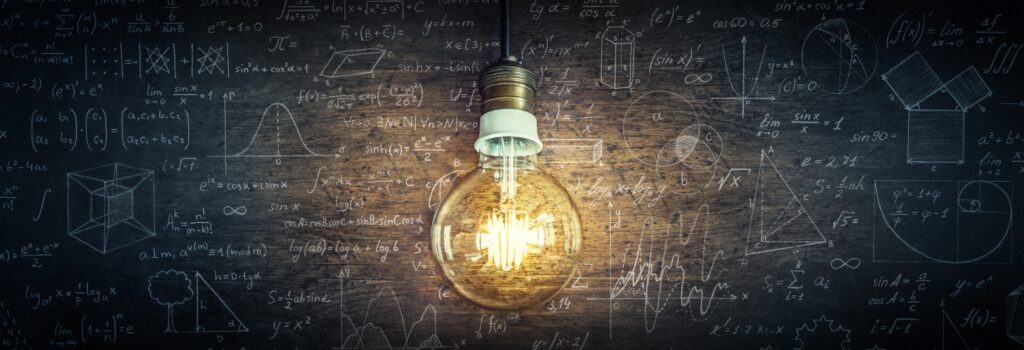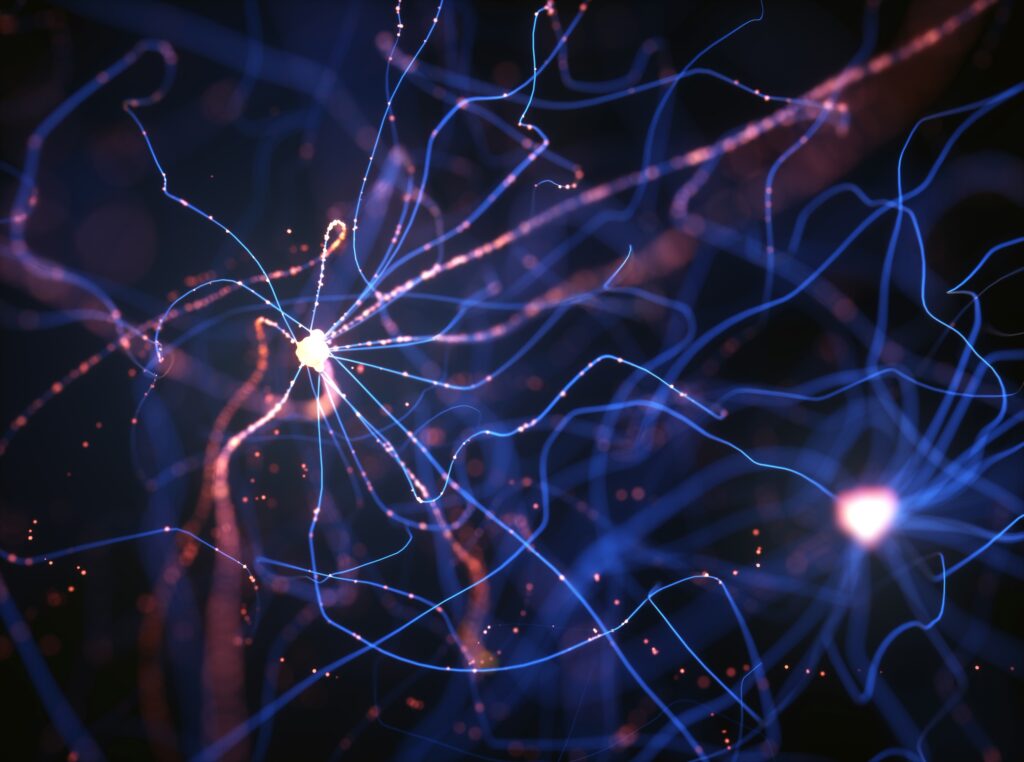Metaphysics without fantasy (The Return of Metaphysics)
Reading | Metaphysics
![]() Hilary Lawson | 2023-02-19
Hilary Lawson | 2023-02-19

What defined much of 20th-century philosophy was an attempt to overcome metaphysics and replace it with science. But those attempts failed. From the Logical Positivists and Wittgenstein to Derrida and Heidegger, metaphysics found its way back into the very theories that were trying to get rid of it. But even if metaphysics is inescapable, we cannot simply return to speculative theorizing about the ultimate nature of reality. Instead, we need to recognize that all theories have limits and are merely attempts to find better ways to navigate our way in the world, not to discover ‘the mind of God,’ argues Hilary Lawson. This essay is the latest installment of our series The Return of Metaphysics, produced in collaboration with the Institute of Art and Ideas (IAI). It has been first published by the IAI on the 23rd of January, 2023.
For much of the twentieth century, metaphysics has been deeply out of fashion, derided as the unfounded beliefs and prejudices of a pre-scientific era. But metaphysics is back. Both in the writings of philosophers and implicitly in culture more generally. It is a phenomenon we should take seriously, but it is not one that we can casually endorse. To find a way forward, we need to rethink the very nature of metaphysics, and what it is to have an overall framework of belief.
We can perhaps account for the fall of metaphysics from its highpoint in the nineteenth century and its more recent return as indicative of a more general long term historical shift in our framework of belief. An avalanche of technological breakthroughs and the remarkable impact of science in the first half of the twentieth century—cars, planes, electricity, and, more darkly, atomic power—led to a consistent and accelerating decline in religious belief. As such, both intellectual and popular culture have come to look to science for the answers to almost all questions, be it the solution to Covid, a new anti-aging cream, the origin of the universe, or the nature of consciousness. In this sense, science is the philosophy of our time, the framework through which we see the world.
Yet, in recent decades there are clear signs that the tide is turning. While formal religious belief dwindles ever more rapidly, there is now also an increasing skepticism towards science and technology. Science is seen to have an agenda and not necessarily one that all wish to endorse. Perhaps the origin of this more recent skepticism can be attributed to the recognition of the importance of perspective, which has moved beyond academic life and has invaded culture as a whole. For whatever reason, we can perhaps already begin to catch sight of the passing of the highpoint of scientific belief. But where do we go from here, given that for many a retreat to religion or the dogmatic metaphysical philosophies of the past is not a desirable or attractive option?
If we are to find a way forward, we must first have a better sense of the motivations that led to the abandonment of nineteenth-century metaphysics, and why the central strategy of philosophy’s twentieth-century critiques proved unsuccessful.
The attempt to eradicate metaphysics
The attempt to eradicate metaphysics in the early decades of the twentieth century, initiated by Bertrand Russel and later extended and popularized by logical positivists like A. J. Ayer, aimed to replace Victorian metaphysical philosophy with science and logic. As a program, it had a lot going for it: sweeping away dusty prejudice in favor of a careful examination of evidence and a contemporary approach to the world.
But, from the outset, there was a problem. Although this new positivist philosophy seemingly cut away unsubstantiated, speculative claims, leaving us with facts and evidenced-based knowledge, the theory failed by its own standards, for it was not itself verifiable. Nor is this a mere technical problem affecting one particular theory: it applies more generally to any overall account of ourselves and the world that seeks to be based on facts alone. The issue is fundamental: we can give no account of facts independent of perspective. In which case a purely factually based language is seen to be impossible.
The deep challenge, therefore, for those who catch sight of this self-referential paradox is how to respond to a circumstance where the denial of metaphysics is itself metaphysical. Wittgenstein and Derrida, from their respective philosophical traditions, reflect this predicament and provide their own brilliant, but—I will argue—flawed responses, leaving us with the challenge of how to proceed. For if metaphysics is inescapable, and yet cannot be purely based on facts, how can a metaphysics be formulated that is not empty speculation?
Strategies to escape metaphysics
In his early work, Wittgenstein lays out a realist account of language, one that seeks to describe how language maps onto the world. He concludes, however, that the description of that relationship is not one that can be expressed in language, because it is not an observable fact in the world. The philosophical system that Wittgenstein outlines in the Tractatus [Editor’s note: Ludwig Wittgenstein’s book, the “Tractatus Logico-Philosophicus”] in 1921 cannot itself be a fact or collection of facts, because it purports to describe how facts themselves operate. So we can see Wittgenstein is forced to reject philosophical realism on the grounds that it unavoidably incorporates a metaphysical outlook that fatally undermines the theory itself. Initially abandoning philosophy in favor of being a gardener, his later work responds by avoiding putting forward any overall account of language or the world at all [Editor’s note: cf. Wittgenstein’s posthumously published book, “Philosophical Investigations,” 1953].
The problem with this avoidance strategy is that for us to understand the later Wittgenstein of the Philosophical Investigations, we have to implicitly rely on an overall account of language that he explicitly tries to avoid. We can paraphrase this overall account as something along the lines of ‘we are always at play in a language game.’ Wittgenstein, of course, avoids making this seemingly straightforward claim because it falls to the same self-referential puzzle that he identified in the Tractatus. Namely, the claim cannot be made, for it would have to escape from all language games in order to tell us, from outside language, as it were, what is really going on; namely, that we as humans are at play in a framework of language that determines our world.
Like Wittgenstein, Derrida was well aware of the self-referential puzzle in seeking to deny metaphysics and an overall philosophical account of the world. While Wittgenstein’s strategy can be characterized as ‘avoidance,’ Derrida’s can be seen as ‘serial abandonment.’ Derrida sets out by identifying our inability to determine precise meaning—and, therefore, our inability to say how things are—in any ultimate sense, arguing that even in the experience of the momentary present there can be no definitive meaning, specific experience, or possible description of that moment. This was Derrida’s attack on the so-called metaphysics of presence, which he argued is embedded in the history of western thought. But his attack on the metaphysics of presence—and, more generally, on determinate meaning—has to necessarily set up its own discourse, its own vocabulary of ‘presence’ and ‘absence,’ ‘writing’ and ‘speech,’ ‘arche-writing’ and ‘differance,’ which has the appearance of an overall philosophical outlook or metaphysics. Derrida therefore has to deconstruct his own text, inventing new terminology and abandoning his previous form of discourse in favor of an alternative vocabulary: ‘trace’ and ‘supplement,’ and later ‘track’ and pathway’ [1]. In due course, these new vocabularies have also to be abandoned and for the same reason that, as they are formulated, so they begin to constitute an overall account or metaphysics which in some sense they are setting out to deny. In response, Derrida employs further strategies to avoid being seen to make any overall claim, including the process of erasure, where he crosses through a word as if to deny its assertion, and parody.
Despite the sophistication of Wittgenstein and Derrida’s attempts to escape metaphysics, neither of these strategies, of avoidance or serial abandonment, can be deemed successful or even potentially successful. In order to understand them, we have to explain them as taking an overall position, the very thing they are seeking to deny. In the case of Derrida, this ‘overall position’ will need to be modified as his terminology evolves, but we still have to formulate an account of what he is up to at any given point ,in order to at least temporarily make sense of the text.
Metaphysics, therefore, is not so easily jettisoned. If we are in a language game, or meaning is undecidable, or we are trapped in the ‘phallogocentrism’ [Editor’s note: a made-up word by Derrida, meant to indicate the masculine bias of Western attempts to construct meaning] of Western thought, as Derrida later contends, we have, after all, caught sight of the very nature of the human condition, something that these philosophers and much twentieth-century thought denied was possible. Insofar as philosophy is deemed possible at all, therefore, we have little alternative but to conclude that any philosophical claim must either explicitly or implicitly carry with it an overall—and therefore metaphysical—framework that we rely upon to make sense of the claim in the first place. There is, in Hilary Putnam’s phrase, ‘no God’s eye view.’ Or, to use Thomas Nagel’s vocabulary, there is no ‘view from nowhere.’
21st century metaphysics
Where, then, do we go from here? While metaphysics may not be avoidable, many are rightly nervous of a retreat from evidence-based science to speculative metaphysical philosophies of the past, or the inherent faith of religion.
Yet, given our inability to escape metaphysics, we have no choice but to recognize that our accounts of the world inevitably have elements that are not evidential and based on ‘facts.’ The Wittgensteinian and postmodern evasions and strategies to avoid saying anything explicit or decidable begin to look like bad faith and a failure to accept that we have to nail our colors to a metaphysical mast, because we will be forced to do so however much we seek to evade it.
A new twenty-first-century metaphysics cannot, however, be a return to the speculative fantasies of the past, and for two fundamental reasons. The first reason is that the motivations behind the early twentieth-century analytic attack on speculative metaphysics are ones most still wish to endorse: namely, the attempt to eradicate and remove beliefs based on prejudice and ungrounded claims, and the desire to avoid unsupported assertions and empty speculations. And the second reason is that we have no account of how any such a metaphysical theory could accurately describe the true nature of the world.
While we cannot avoid metaphysics, therefore, we cannot suppose that any given metaphysical theory might actually be a true description of reality, as if we could see—in Hawking’s phrase—into the ‘mind of God.’ As a result, the philosophical framework that I advocate, based around a vocabulary of openness and closure (terms employed somewhat differently by Derrida in his shifting lexicon) seeks to provide an account of the relationship between experience, language, and the world which helps explain the effectiveness of thought and language, but without committing us to the realist notion that thought or language accurately describe reality [2].
Metaphysics is certainly back on the agenda. No doubt in part because its denial is problematic for some of the reasons cited above. As a consequence, metaphysical frameworks, such as idealism and panpsychism, which were derided as baseless nonsense by the positivists of the past, are back in new forms. But such claims cannot be taken as a true description of an ultimate reality, for there is no credible realist theory of language that would make sense of such claims. Yet, it is not uncommon for proponents and commentators to appear to take these claims at face value. Similarly, metaphysical claims about alternative realities, multiverses, and possible worlds are widespread and often appear to propose that these claims are straight-forwardly descriptions of the ultimate character of reality.
To make any of these claims viable, we require a coherent theory about how these metaphysical stories might, in fact, be a true description of reality. And to date, no such realist account of language is available. To claim, for example, that ‘everything is conscious’ in a realist sense, or that ‘we are consciousness,’ makes little sense unless we can first give an account of how our particular language, and our particular vocabulary, and this particular theory of consciousness are capable of describing the world as it in fact is. The very same twentieth-century philosophical endeavor that sought to eradicate metaphysics was, for this very reason, also involved in the attempt to provide just such a realist account of language.
Nor is it accidental that the failure to eradicate metaphysics parallels the failure to provide an account of how language hooks onto the world. The two outcomes are, of course, intimately linked. Wittgenstein’s abandonment of metaphysics was directly a consequence of his having concluded in the Tractatus that a realist theory of language was not possible, because it falls to the self-referential paradox that it is unable to give an account of itself [3]. Some have thought the logician Alfred Tarski provided a solution in the form of his hierarchy of languages. But as I have argued elsewhere [4], and concur with Hilary Putnam, these solutions are illusory and the describe the relation between language and the world ‘a shambles’ [5, 6].
In the context of contemporary philosophy, therefore, we can see the dual failure of early analytic philosophy to describe the relation between language and the world and to eradicate metaphysics as encouraging a return to metaphysical claims. Yet, at the same time, this has the immediate consequence that the new metaphysics cannot itself be presented as a realist theory about the world; it cannot claim to be a true description of the ultimate character of reality.
More broadly, in culture as a whole, we can see the revival of metaphysics as in part a consequence of the undermining of our certainty in the truths of science and a growing awareness that science itself is one outlook amongst others. Yet, we still remain attached to the realist belief that there is a correct answer that can, in principle, be found. It is as if the linguistic turn encouraged philosophers and, in due course, culture as a whole to identify the importance of perspective—’the limits of my language are the limits of my world’—but we have not taken on board the consequences: namely, that there can be no final answers, no ultimate story to tell us where we are.
Perhaps we have arrived at this contemporary predicament because the Wittgensteinian and Derridian moves to avoid or evade metaphysics have not been successful. Postmodernism in particular, in its systematic attack on meaning and the encouragement of a plethora of alternative perspectives, left many either lost or critical of such an approach as a harbinger of chaos. But we cannot conclude from this that a simple return to metaphysical belief is a viable option. While we may wish to reject the materialist realism of science as a form of metaphysical prejudice, we cannot do so in favour of an alternative metaphysical framework that also claims to describe an ultimate reality, be it a new form of idealism, panpsychism, or some Hollywood influenced Matrix version of ‘we are living in a simulated reality’ without having a theory of language that explains how any of these realist claims are possible [Editor’s note: as a think tank that promotes idealism, Essentia Foundation’s own vision in this respect is that, insofar as we need a story in terms of which to relate to reality, we might as well choose the best story we can produce; the story that the best fulfills our own truth criteria—such as internal consistency, explanatory power, empirical adequacy, etc.—even if these are ultimately naive; we believe that what we need is a better account of reality, not an ultimately correct one; that we can and must correct our own self-evident mistakes in current mainstream metaphysics by adopting a more viable story, even though we recognize that such a story can never be the final one, due to limitations not only of our language, but our very cognitive apparatuses].
What we need instead are metaphysical frameworks that do not adopt a realist account of language. This will, of course, involve giving up the idea that we might have cracked the philosophical puzzle of how to describe ourselves and the world once and for all. But since no such theory in the last few thousand years has been able to plausibly make such a claim, this is less onerous a loss than some might first imagine.
Metaphysics is not to be abandoned or avoided. But we should also recognize that no metaphysics we put forward is capable of overcoming perspective, be it cultural, linguistic, or human. There is no true metaphysics in a realist sense; no correct story of ourselves and the universe. Some may feel this is at first sight a disturbing idea, as if we are lost adrift in an unknowable world. But if so, have we not always been lost? And instead it offers a world of potential, ways to see and intervene in the world enabling outcomes current unavailable to us.
The purpose of providing a metaphysics is not to describe the world once and for all, to catch sight of a God’s eye view of the world; it has a more important aim of making our thinking more effective and more powerful, and better able to deliver our desires and goals. So it is that the framework of openness and closure that I have put forward is not presented as an ultimate description of reality, but as a means to refine and improve our ability to intervene in the world and provide an account of how its claims, and the claims of language and science, can be understood and, in some cases, prove powerful even though they do not reference or describe reality. Any attempt to provide a new metaphysics must surely also provide a means to make sense of the claims of the theory itself and describe how those claims are to be understood; something that it seems to me, despite the plethora of contemporary metaphysical offerings, is in rather short supply.
Notes
[1] H.Lawson, Reflexivity, Chapter 4 ‘Derrida’, p.90.
[2] H.Lawson, Closure, Routledge, 2001.
[3] Ludwig Wittgenstein, Tractatus Logico Philosophicus, (Routledge and Kegan Paul 1961) Sections 6.3- 6.7.
[4] Hilary Lawson, Closure, p. xxxiv – xxxvii.
[5] Hilary Putnam, Realism with a Human Face, (Harvard University Press, 1992), p.51.
[6] Hilary Putnam, Reason Truth and History (Cambridge University Press, 1981), Chapter 3 and p.72-4.

Essentia Foundation communicates, in an accessible but rigorous manner, the latest results in science and philosophy that point to the mental nature of reality. We are committed to strict, academic-level curation of the material we publish.
Recently published
Reading
Essays
Seeing
Videos
Let us build the future of our culture together
Essentia Foundation is a registered non-profit committed to making its content as accessible as possible. Therefore, we depend on contributions from people like you to continue to do our work. There are many ways to contribute.















